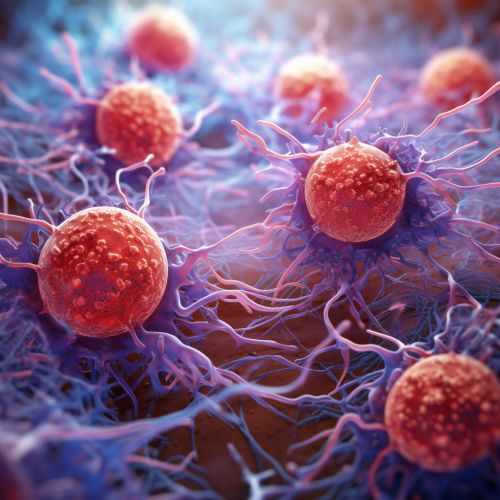The Role of Immune Checkpoint Inhibitors in Autoimmune Diseases
Introduction
Immune checkpoint inhibitors are a class of drugs that have revolutionized the treatment of cancer. They work by blocking proteins that prevent immune cells from attacking cancer cells. However, their role in autoimmune diseases is a topic of ongoing research. Autoimmune diseases are conditions where the body's immune system mistakenly attacks its own cells. In this article, we will delve into the role of immune checkpoint inhibitors in autoimmune diseases.


Immune Checkpoints and Their Inhibitors
Immune checkpoints are proteins on immune cells that need to be activated (or inactivated) to start an immune response. In cancer, these checkpoints are often manipulated by cancer cells to avoid being targeted by the immune system. Immune checkpoint inhibitors are drugs that target these proteins, effectively "releasing the brakes" on the immune system and allowing it to attack cancer cells.
Some of the most well-known immune checkpoint inhibitors target proteins like PD-1, PD-L1, and CTLA-4. These drugs have shown remarkable success in treating various types of cancer, including melanoma, lung cancer, and kidney cancer.
Immune Checkpoint Inhibitors and Autoimmune Diseases
In autoimmune diseases, the immune system is already overactive, attacking the body's own cells. Theoretically, using immune checkpoint inhibitors in this context could exacerbate the disease by further stimulating the immune response. However, research has shown that this is not always the case.
In fact, some studies suggest that immune checkpoint inhibitors could potentially be used to treat certain autoimmune diseases. For example, a study published in the journal Nature showed that blocking PD-1 could reduce symptoms in a mouse model of multiple sclerosis, a debilitating autoimmune disease that affects the nervous system.
However, it's important to note that this is a very active area of research, and much is still unknown about the potential benefits and risks of using immune checkpoint inhibitors to treat autoimmune diseases.
Potential Mechanisms of Action
The exact mechanisms by which immune checkpoint inhibitors could potentially affect autoimmune diseases are not fully understood. However, several theories have been proposed.
One theory is that immune checkpoint inhibitors could modulate the immune response in a way that reduces inflammation and tissue damage. For example, by blocking PD-1, these drugs could potentially prevent the activation of T cells that are responsible for the autoimmune response.
Another theory is that immune checkpoint inhibitors could help to restore "immune tolerance" – the ability of the immune system to distinguish between self and non-self. This could potentially prevent the immune system from attacking the body's own cells, thereby reducing the symptoms of autoimmune diseases.
Clinical Trials and Research
Several clinical trials are currently underway to investigate the potential use of immune checkpoint inhibitors in treating autoimmune diseases. These trials are exploring a variety of different diseases, including rheumatoid arthritis, lupus, and multiple sclerosis.
However, it's important to note that these trials are still in the early stages, and it will likely be several years before we have definitive answers about the safety and efficacy of these drugs in this context.
Challenges and Considerations
While the potential use of immune checkpoint inhibitors in treating autoimmune diseases is exciting, there are several important considerations to keep in mind.
First, these drugs can have serious side effects, including the potential to trigger new autoimmune diseases. This is because they work by stimulating the immune system, which can potentially lead to an overactive immune response.
Second, not all autoimmune diseases are the same. They each have their own unique characteristics and underlying mechanisms, which means that immune checkpoint inhibitors may not be effective for all types of autoimmune diseases.
Finally, more research is needed to understand the long-term effects of these drugs. While they have shown promise in treating cancer, their long-term effects in the context of autoimmune diseases are still largely unknown.
Conclusion
The role of immune checkpoint inhibitors in autoimmune diseases is a complex and evolving field of research. While these drugs have shown promise in treating cancer, their potential use in treating autoimmune diseases is still largely theoretical. However, ongoing research and clinical trials may soon provide more definitive answers.
